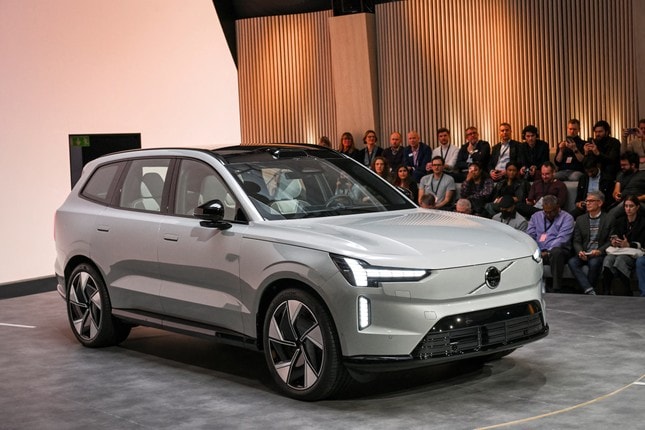Volvo says it will introduce battery passports for electric vehicles this year, becoming the first automaker in the world to do so.
 |
| Volvo EX90 will be the world's first electric car to be offered with a battery passport |
Volvo is rolling out a battery passport program for its upcoming EX90 electric SUV, a solution developed over the past five years by the Swedish automaker and British startup Circulor, Reuters reports.
The electric vehicle battery passport uses blockchain technology to map the supply chain, providing detailed information about the vehicle's battery. This includes the battery's composition, raw materials and origin, as well as its recycled content and carbon footprint.
In addition to proving origin, the passport will also provide information about the condition of the electric car battery, helping buyers feel secure when buying a new car, while also making it easier to assess the value of a used electric car.
This initiative was launched to meet the European Union (EU)'s requirement that all electric vehicles sold in this market must have a battery passport from February 2027.
Still, Volvo’s head of global sustainability, Vanessa Butani, said introducing the battery passport nearly three years before the regulations come into effect was intended to be transparent to buyers and to underscore Volvo’s pioneering position in the electric car industry. The brand has previously stated its goal of selling only electric cars by 2030.
Owners will be able to access a “brief version” of the battery passport by scanning a QR code on the driver’s door, Reuters reports, while the detailed version will be given to authorities and dealers are said to have access to.
According to Circulor CEO Douglas Johnson-Poensgen, the battery passport technology will add $10 to the price of each electric car and will be valid for 15 years. Volvo said the passport will be gradually rolled out to all of its electric cars.
As for the EX90, the EV was originally scheduled to launch in 2023, but was delayed by a year while Volvo fixed issues with its Lidar software. The three-row EV is said to have entered production in the first half of this year and is expected to hit the shelves next fall.
TB (according to Tien Phong)